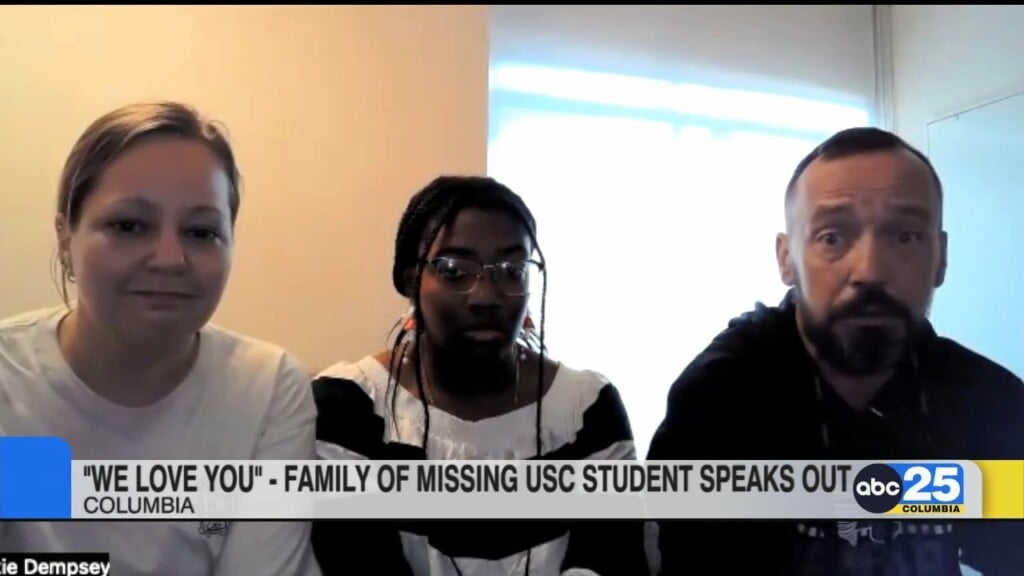Operation Lost Trust: 24 Years Later
COLUMBIA, S.C. (WOLO) — The year was 1990 and the Federal Government was in Columbia to clean house. By the time Operation Lost Trust was over 27 people, the majority state Representatives, a state Senator turned Judge and lobbyists, were convicted for vote selling. “The thing that shocked me the most was how cheap they were. How little money they would take to sell their votes, I mean, it was just it was a little startling to me,” says John Barton, who prosecuted Operation Lost Trust In 1990 Barton was head of the criminal division for the United States Attorney General’s Office, District of South Carolina. He and Sherri Lydon helped prosecute Lost Trust. “It wasn‘t just $2,000 on that day for that vote. It was free golf clubs, free rounds of golf, free suits,” says Lydon At the time Lydon was just four years out of law school. “I think prosecutors are public servants first before they are advocates or attorneys,” said Lydon in 1990 when interviewed by ABC Columbia News Together Lydon and Barton worked alongside the leadership of then U.S. Attorney, South Carolina, Bart Daniel. Some of the prosection may be familiar. Daniel most recently represented ex-Speaker Bobby Harrell in his conviction of using campaign funds for personal use. Lydon is now representing the state’s longest serving sheriff, James Metts, in his federal bribery case. Lydon and Barton both say the State House twenty-four years ago was a different era. Some say taking money and gifts from a lobbyist was status-quo. “Back then you could pay a legislature any amount of money, at any time, in any form – cash or credit card or check, and they could use it for whatever they wanted to,” says Barton “They would literally, when they got to Columbia on Tuesday, they would find a lobbyist, get the lobbyist‘s credit card and return it to the lobbyist the following Thursday,” says Barton Little did lawmakers know, an undercover investigation was underway. “I would type with these two fingers because we didn‘t want the support staff to know what was going on. I had a locked file cabinet in my office that people were always asking me about,” says Barton Lawmakers also didn’t know a lobbyist, caught on video handing them money, agreed to help in the investigation after he, himself, got caught up on drug charges. That lobbyist was a man by the name of Ron Cobb. “We would get a call that Ron Cobb had set up a meeting and we would rush down to the off site location and watch it,” says Barton But, there was a moment when Operation Lost Trust almost didn’t happen, when something went wrong with an undercover FBI agent. “He was meeting with the legislators and his jacket fell open during one of the meetings and the legislator saw a red light on the inside of his coat pocket and everybody just went crazy,” says Barton The agent was confronted the next day. He explained it by saying it was a key fob. “Overnight, an FBI agent here in Columbia – Bob Johnson, a very good agent took a key fob that you press and the red light comes on. He wired it so the red light was on all the time,” says Barton In July of 1990, Operation Lost Trust went covert to overt. “Wow. That was a big day, because they sent out agents all over the state to interview the legislators at the same time,” says Lydon Asking the same questions. “They said that they were having this investigation and that I was not the target, but they needed to see my books and records and stuff,” says Tim Wilkes, former state representative The investigation would be all over the news that night. “The report came down that the feds were starting to seize financial disclosure records,” says Schyuler Kropf, of the Post and Courier. Kropf, who still works for the Post and Courier, covered Lost Trust. “A number of people that you thought were boy scouts turned out to have a double life that they led when they were in Columbia,” says Kropf While some lawmakers pleaded, only five went to trial. During the trials, Kropf and three other reporters were jailed for not revealing a source. That source, according to Kropf, was Representative Bud Long of Myrtle Beach. “It think just for reinforcement value, the federal prosecutors wanted to put us on the stand to say what Bud had told us about the money he had taken,” says Kropf The reporters were jailed for two days, during the day, before the judge decided not to hold them any longer because they weren’t giving up their source. The feds would go on to win twenty-six cases, losing only one. Tomorrow, we will introduce you to the man who beat Lost Trust, the man who defended him and the man who wrote a book about it all.

